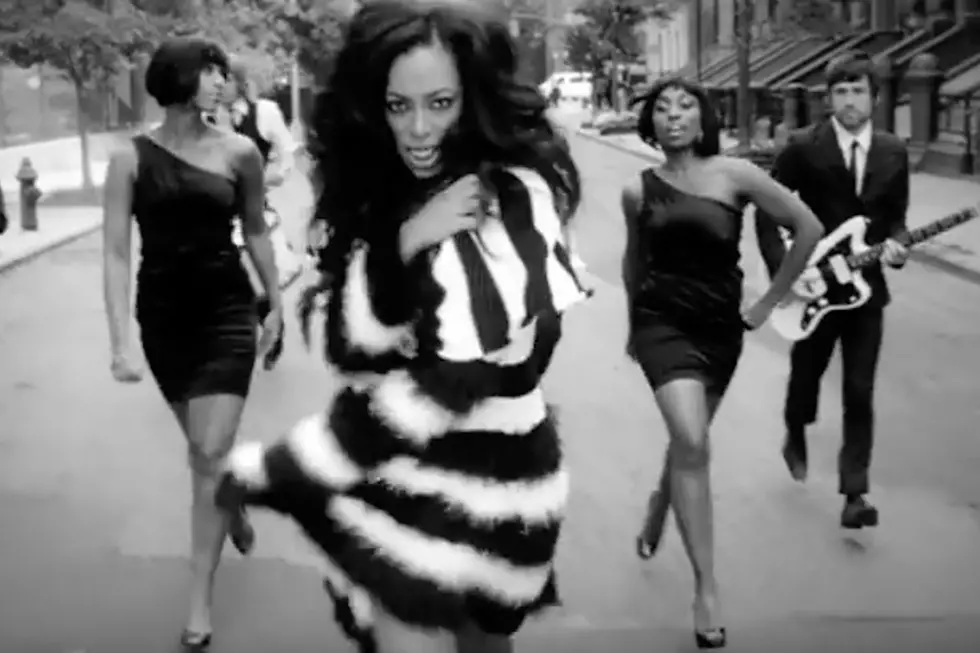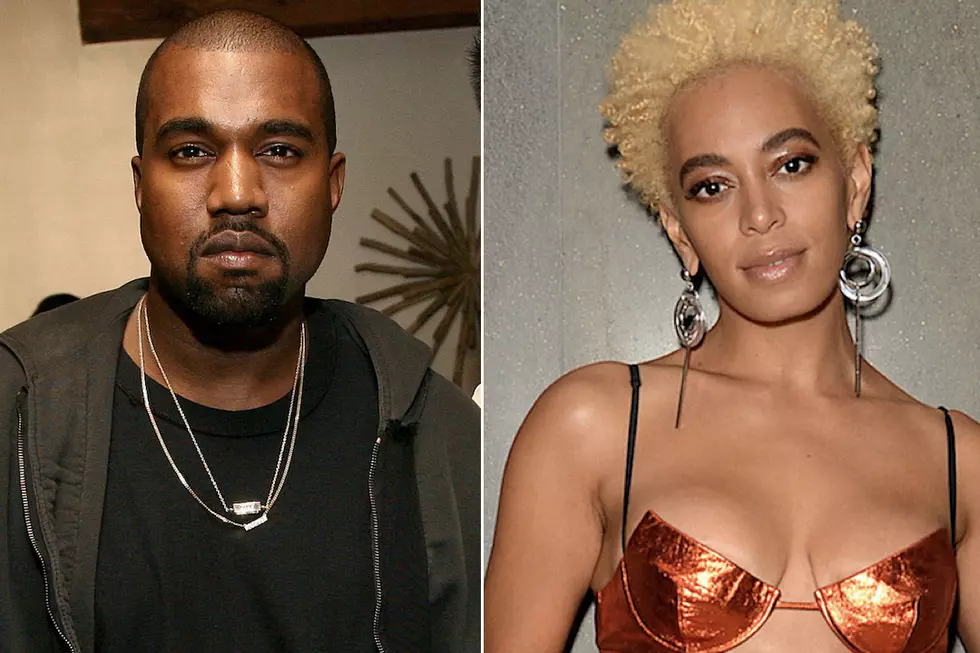
How Solange Redefined Black Womanhood & “Wokness” With ‘Sol-Angel & the Hadley St. Dreams’
Solange Knowles reintroduced herself with the release of her sophomore album, Sol-Angel & the Hadley St. Dreams. Though it might have been her second studio project, in many ways, it felt like her debut.
In the five years since her debut album Solo Star, Solange she experienced a crash course in adulthood. She married her high school sweetheart at the age of 17 in 2004 and gave birth to her son later that same year at the age of 18. Her husband, Daniel Smith, was a collegiate athlete and accepted a scholarship at a school in Idaho, resulting in Knowles moving with him, and becoming a stay-at-home mother.
"We were probably the only black people there other than those on the football and basketball teams," Knowles said the L.A. Times. "There was no sense of diversity or culture." The isolation led her to do more self-evaluation and ponder the future she wanted for her son. It also caused her to see her marriage was faltering. By 2006, the two had decided to divorce and Knowles began to revamp her life as a single mother in Los Angeles. She used the time of transition to start writing her sophomore album.
Divorce and young motherhood are sometimes taboo topics form women artists to cover in music. Knowles knew, however, that these experiences provided the depth that her artistry needed just like it did for Mary J. Blige, Tina Turner and countless others before her. She told Sister2Sister Magazine, "This record portrays my life. This is the first piece of creative art by me that shows I am a woman and I've gone through things that women do, and I've gone through real-life situations that don't involve dancing and partying and dating: 'Boy, I like you. Do you like me too? I'm feeling you.' (laughs) So I definitely think that's portrayed through the record."
A key component of the maturity of the album is its optimism. Knowles said, "What I love about this record is, though I wrote a lot of it going through my divorce and dating again and a lot of difficult moments, nothing on the record really feels bitter." Indeed, the lyrical content of the album reflects a young woman who is more thankful for the growth that harping on what could have been. The production of the album is free-flowing as if she has no time to sulk over the past.
The sound that Knowles wanted for her album was never a question for her. The challenge instead was getting other producers to buy into her vision. When describing the direction of her album to various producers, Knowles could sense resistance. She tried to remedy their doubts by laying several tracks to offer them an idea of her desired sound was. She credits her friend, actress and media personality, La La Anthony for orchestrating what would become one of her most memorable songs.
Knowles wanted to work with Cee-Lo Green, who at the time, happened to be staying at the same hotel as Anthony in West Hollywood. Anthony told Knowles to rush to the hotel. "So I loaded some tracks onto my iPod and we all went out," Knowles recalled in the LA. Times interview. As the trio enjoyed the nightlife, Knowles began to pitch her album by playing him a few tracks once they got back to the hotel. "He was totally quiet, and I was like, 'Oh, he thinks [it's awful],'" she recalled. "But when it was over he told his manager, 'Make this happen now.'" A week later they recorded what we now know as "T.O.N.Y."
Q-Tip, who was featured on the song "Wanna Go Back," had to be lured in similarly. "Her individualism and her honesty are what drew me to it," Q-Told told the L.A. Times. "She's very much her own person, and she sticks to her guns. When I heard what she had done, I was calling people like, 'Yo, you gotta hear this.'" Eventually, Knowles found a decorated assortment of producers agreeing to contribute to the album, ranging from The Neptunes to Mark Ronson to Soulshock & Karlin. Knowles stated that the variety of producers did not dull her vocalness about the album. She stated, "It's my stories and my choice of producers and writers."
The album resulted in an appreciation for the sixties and seventies from an eighties baby living in a 2000s world. The video for the lead single, "I Decided," totally nailed the eras that inspired Knowles. The Neptunes produced "I Decided," but it was quite a deviation from the electric funk they were known for at the time. The song harkens back to classic Motown girl groups. The video opens with Solange in the 1960s, flanked with presumably two of her own Supremes for vocals and her own Beatles for a band. While she is smiling and dancing, protests from the Civil Rights Movement are going on around her. Later during the 1970s, she is seen tearing up a disco floor while the Black Power movement is at full strength and the feminist movement is making headway. The 1980s show her embracing the music video phenomenon of the decade but still being shrouded in South African apartheid, the crack epidemic, and Reaganomics. Eventually, the video takes her took a futuristic, undeveloped galaxy, a place that seems to show that happiness is a conscious decision rather than what surrounds a person.
The video received some pushback. Many people were confused about how a song that could have had a video treatment about a lovesick schoolgirl instead showed decades of global turmoil. Knowles made a beautiful but somewhat unrewarding introduction to now what we call "woke" culture in a digitally driven society. The song and video were to show that no one is too in love, too famous, or too glamorous to be able to ignore the sordid truths of the world. But just the same, love can sustain a person as so much chaos goes on. Additionally, the black experience is to creatively thrive in such trying times, which is why the video was able to relay to many iconic, instantly recognizable looks.
Questions about her son's future are also threaded throughout the album. On "Ode to Marvin," she questions the lack of community structure just as Marvin Gaye did in the 1970s. She sang, "Street lights, twilight/There's a liquor store by his playground/It's raining a cash flow/But it sits well at home – it's a hustle/Now a mother use to hustle to a different tune/Isn’t the midnight thrilling?/And oh the traffic's heavy but the lights don’t slow you down/He thinks trouble’s fulfilling." She did not express her worries without some optimism. On "6 O'clock Blues," she credits her son as offering her stability despite the depressing cycle of evening news stories. She sang on the chorus, "'Cause people don't make the world go round like they used to/But I know if I got one thing/Baby, I know got you/Yeah, you keep me sheltered from the six o'clock blues/And if I know one thing’s gonna be alright/Then I know that it's me and you."
Knowles' content put her in a precarious position. Her work was retro but not neo-soul. Her album had contributions from music glitterati and she promoted the project in designer duds, but she was open about prejudice and her life struggles. The public was not quite ready for the nuances of the era. Now in 2018, the public has more of an expectation for celebrities to be aware of social issues, while still treating curious eyes to luxury via Instagram. Knowles realized that her label Interscope did not know how to handle the contrasts and sought to break her contract with the label shortly after the album was released. “I’d made it pretty clear what I wanted to do, and how I wanted to roll the record out.," she told the FADER. "I didn’t agree with them that certain stipulations would ensure that people were gonna go out and [buy] the record. It was so institutionalized towards the end that I just couldn’t imagine actually making a record with those things, that noise again.”
Regardless of the choppy rollout, Sol-Angel and the Hadley St. Dreams has solidified itself as one of the defining albums of young black womanhood of its generation. For Knowles personally, it was an opportunity for her to emerge as her authentic and provided a musical template that she continues to draw from. Remarkably, much of what Knowles sang about a decade ago was considered uncomfortable and considered unnecessarily controversial. Today these same topics are considered pivotal conversations and Knowles' insistence one being her authentic self-help to bring such dialogue to the forefront.
More From TheBoombox




![Tina Knowles Reveals She Put Beyonce and Solange in Therapy As Kids [VIDEO]](http://townsquare.media/site/625/files/2018/05/Tina-Knowles-Beyonce.jpg?w=980&q=75)
![Beyonce, Solange Fall Onstage at Coachella [WATCH]](http://townsquare.media/site/625/files/2018/04/GettyImages-949867502.jpg?w=980&q=75)



